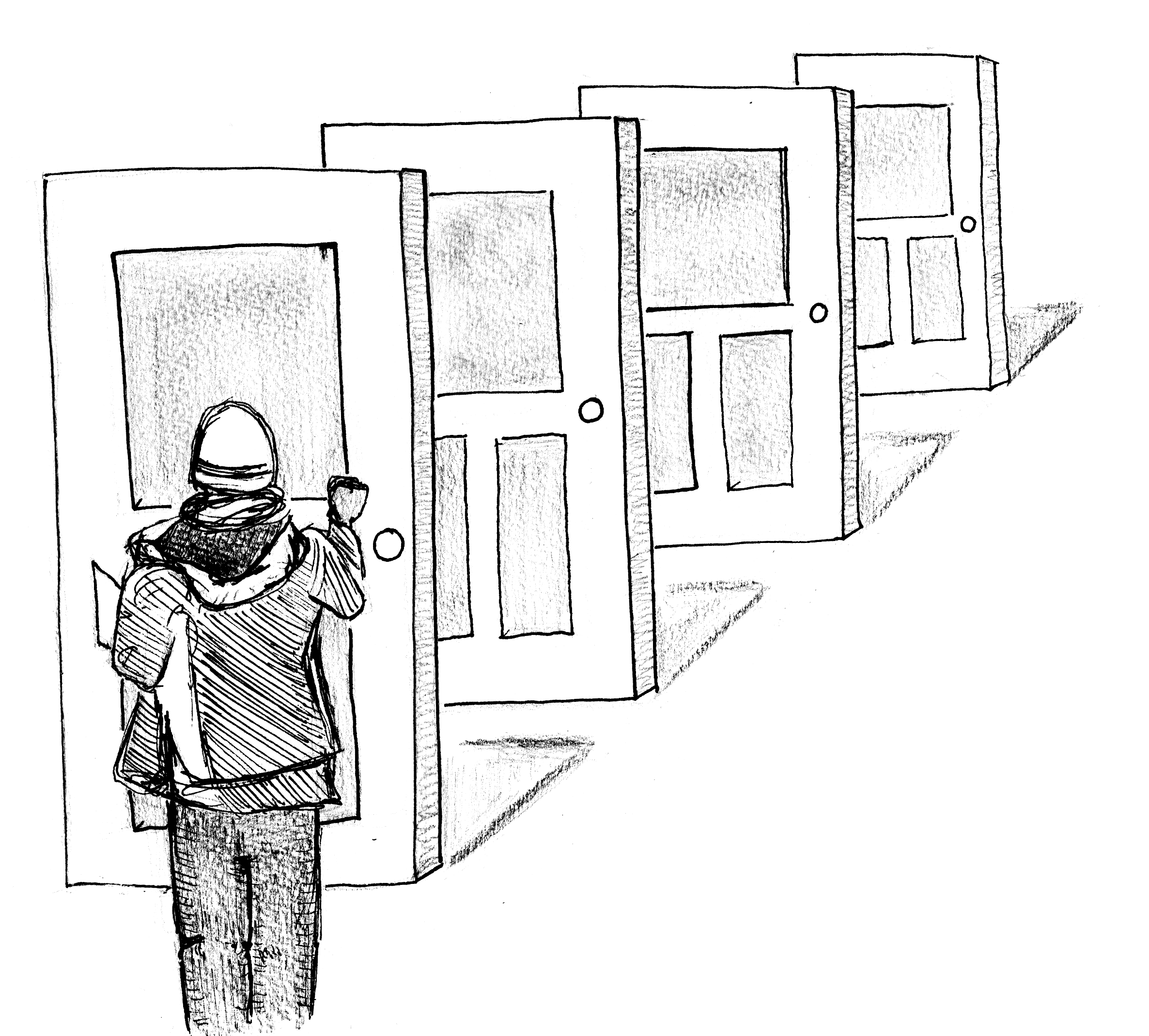Humanity in unknown neighborhoods
October 26, 2018
Enduring the contempt of strangers can be emotionally draining. And contempt is, unsurprisingly, the primary impulse of those whose doors are knocked on when they’re eating dinner with their family, or when their newborn child has just fallen asleep, or they’re just about to dash off to the airport to catch a plane or when they’re already running late and a bright-faced, sweaty, idealistic kid shows up at their door telling them about the plight of sea turtles or the midterm elections. Few are outright rude, although many will be direct about their lack of interest in a conversation about Ballot Question 1. Some folk will refer to the sign propped on their doorstep, a sign you hadn’t noticed, that says, “NO SOLICITORS,” or, more concerningly, “due to the price increase on ammo, do not expect a warning shot.” In Bowdoinham, after a concise refusal to talk about the upcoming elections, a middle-aged man headed to his garage to casually grab his crossbow. He did so without menace—he was simply headed out to hunt—but I had no intention of further angering a man with a crossbow.
And yet, almost every time I return from an unknown neighborhood to the warm and safe halls of my residence hall or my parents’ home in the suburbs, I’m left with a warm feeling in my chest, a reaffirmed sense of love for the human race. Because for every friendly threat of violence, there’s a kid who loves nothing more than to hear about sea turtles and will beg her mother to donate $50, and then her mother gives you an ice-cold lemon seltzer and asks if you would like to come inside, because it’s 95 degrees outside and the air conditioner is blasting in her home.
In Medfield, Mass., a woman in a pink sweatsuit tells you that, you know, people don’t really like it when canvassers come to their door and you almost start crying because you haven’t earned more than five dollars that day, and one of those dollars is in quarters, and you’ve already been told by two people that global warming is a hoax.
But the next day, you knock on a door in Essex, out by the coast, and a couple rushes to open it and welcome you inside their home and before you can get more than a few lines into the script you’ve memorized, they’re telling you a story about their friend who raised their children on a ship sailing around the world. Their names are Kelly and Steve, and after joining the monthly donation program, they hand you a $20 bill. “Buy yourself a beer with it,” Kelly whispers.
Then there are the conversations that change you. Like the man, barely older than you, who opens the door just as you are rolling up a pamphlet to stick under the handle of his family’s one-story home. His strawberry blond scruff hasn’t been shaved in a couple of days, and he’s significantly shorter than you, and his size makes you feel confident, like you can charm this guy into donating a few bucks. You smile with your eyes and lean forward just a little bit as you launch into your rap about polystyrene pollution. And then he surprises you. He tells you that he really wants to help, but that he isn’t doing super well at the moment. His dad has brain cancer and it has been a rough year. All of your training—and there’s been plenty—has equipped you with the instinct to reject rejection, to retarget, to fight tooth and nail for a donation. It feels slimy, to squeeze money from this young man, but the ethical lines are blurry, and when he agrees to donate 20 bucks you are filled with both pride and shame. Despite his personal struggles, despite being rushed to his shift as a cashier at the grocery store, despite his limp, he wants to donate money to protect marine wildlife, acting with a selflessness that both shocks and inspires you to become a better person.
Canvassing is practice in vulnerability. You must forge a connection with a person who is likely to hate you for showing up on your doorstep. You must listen to people with whom you disagree and attempt to find common ground. You are dependent upon the generosity of strangers, stepping into the cave of a sleeping bear, prodding it awake and asking it whether it would like to donate a $100 annually to support the proposed Styrofoam ban in Massachusetts. Sometimes the bear bites you, but sometimes the bear reminds you of the life-altering power of human kindness.
Lucie Nolden is a member of the Class of 2022.


Comments
Before submitting a comment, please review our comment policy. Some key points from the policy: